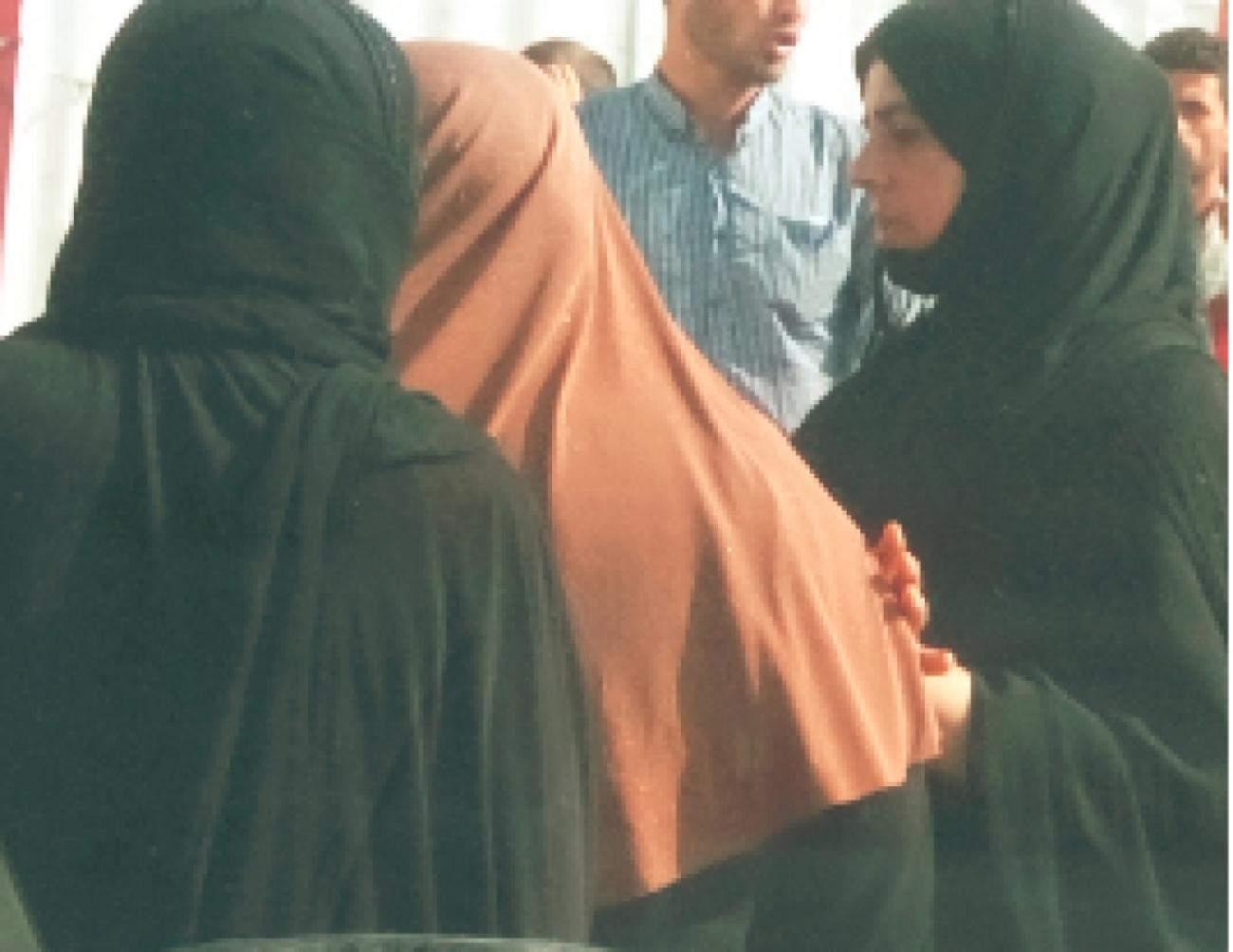Part 2 - UN Women Iraq Provides a Voice for Dignity in our Humanity: Untold Stories of IDP Women and Girls from Mosul

This is a continuation of a series of articles that are focusing on providing a Voice for Dignity in our Humanity.
Through these articles, UN Women Iraq is lending a voice for advocacy of women and girls who have been silenced and restricted for more than two years by ISIS rule in Mosul. Part 2 focuses on the story of the Ahmad family and a University Graduate, whom I shall refer to as Fatima.
The Ahmad Family
Having recently left Mosul, Mrs. Ahmad recounts her experiences and that of her three daughters and two sons during the ISIS occupation. She does not talk of her husband or what has become of him. She mentions “ISIS took over the school curriculum. My son who was only in primary 3 was learning about guns, bombs, and, rockets in the curriculum that was changed by ISIS. We were also being charged additional fees. I did not want my sons or daughters learning from this type of school curriculum that focused on how to destroy human life. One day ISIS asked my son to point a toy gun at his father and shoot him. They began to laugh as my son pointed the gun at his father. This was very horrible and traumatic. I removed my sons and daughters and they did not go to school for more than two years. I wanted my children to continue their education because as a mother I grew up in a village with only a primary school and only went to primary 2. ISIS has stopped my children from getting the education that they deserve.”
 Fatima, The University Graduate
Fatima, The University Graduate
The experiences of Fatima are shared here. “I was the pride and joy of my family. I had just graduated from Mosul University with a degree in Psychology before ISIS terrorists came to Mosul. My goal was to continue to graduate school and serve my people. When ISIS occupied Mosul, I could not continue my education to complete my Master’s degree and I had to stay in my house for more than two years. My family and I really struggled. We struggled daily with fear of our lives due to lack of security and human necessities. Since fleeing from Mosul, I am fortunate to be able to use my psychology background to assist in providing psychosocial services to other IDPs. Although I have been deeply traumatized, I was not raped because I hid inside the house under the protection of my husband. Some of my classmates have suffered from being raped by several ISIS members and some had children. I do not know where they are now.”
Unfortunately, the Ahmad family and Fatima are not unique in these experiences. The ISIS occupation has interrupted the education of millions from primary school through university who had to make a decision of safety versus continuing their education. Many children have been forced to be desensitized to killing under the ISIS curriculum. Mrs. Ahmad was fortunate to have removed her children early but many families were not able to rescue their children from this curriculum. Fatima is able to assist other IDPs with psychosocial support but she is only one out of an anticipated wave of 1.2 million IDPs in need of livelihood, support, and empowerment activities. More than an estimated half of the anticipated 1.2 million IDPs are women, girls, and female headed households.
UN Women seeks to provide a platform for the voices of women and girls to be heard through establishing listening centers in the IDP camps. Dr. Chiwangu states that “These listening centers that will cater to women and girls are only possible with additional donor support. The women and girls having gone through immense trauma and being silenced for a long time need to be heard.”
Part 1 focusing on the story of Aisha and The Mohamad Family can be read in this link: https://goo.gl/PqzTzc
UN Women is the UN organization dedicated to gender equality and the empowerment of women. A global champion for women and girls, UN Women was established to accelerate progress on meeting their needs worldwide.
For media inquiries, please contact Dr. Bernice B. Rumala at Bernice.Rumala@unwomen.org. Photo credit: Dr. Bernice B. Rumala, women and girls in an IDP camp

